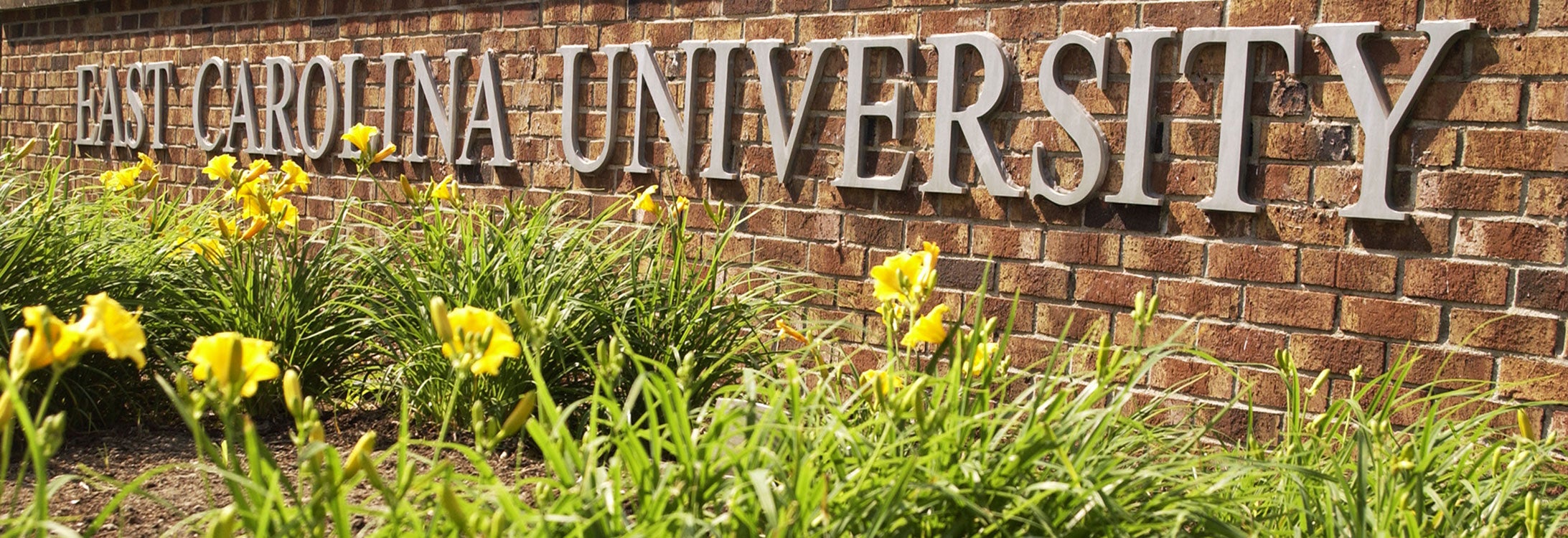Policies & Procedures
Student Code of Conduct
The Student Conduct Process regulation and supporting policies and procedures have been approved by the Chancellor and are based on input from students, faculty, and staff of East Carolina University. They are intended to aid in the fulfillment of ECU’s mission and in securing the broadest range of freedom for each member of the community. These policies and procedures set behavioral standards that protect the health, safety, welfare, property, and human rights of all members of the community as well as the property of the University.
Academic Integrity
Academic integrity is a cornerstone value of the intellectual community at East Carolina University. Academic integrity ensures that students derive optimal benefit from their educational experience and their pursuit of knowledge. Violating the principle of academic integrity damages the reputation of the university and undermines its educational mission. Without the assurance of integrity in academic work, including research, degrees from the university lose value, and the world beyond campus (graduate schools, employers, colleagues, neighbors, etc.) learns that it cannot trust credits or a diploma earned at ECU. For these reasons, academic integrity is required of every ECU student.
Student Organization Conduct
East Carolina University is dedicated to providing an environment that supports registered Student Organizations’ ability to freely associate and express themselves. It is through Student Organizations that students have opportunities for intellectual growth and development outside the classroom. All registered Student Organizations are expected to act consistently with the values of the University community. Student Organizations may be collectively responsible for any action(s) committed by members on behalf of the Organization that violate the ECU Student Code of Conduct.
Recognized Student Organizations are responsible for abiding by University policy, the ECU Student Code of Conduct, and all other agreements between the University and the Student Organization.
The Student Organization Conduct Handbook identifies the specific Student Organization policies and student driven procedures the University follows when it receives a report alleging a violation of the ECU Student Code of Conduct by a Student Organization.
Rights & Responsibilities
A student whose conduct is under review is a Respondent and has the following rights and responsibilities.
Good Samaritan Regulation
The purpose of the Good Samaritan Regulation (“Regulation” or “GSR”) is to remove a potential barrier and facilitate access to emergency medical care in cases of alcohol related medical emergencies. The goal is to increase the likelihood that a person needing medical assistance will receive this assistance by reducing the reluctance of students to seek out appropriate help due to fear of potential University consequences assigned by the Office of Student Rights and Responsibilities (“OSRR”) to themselves or another person in need of assistance.
Sanctions
Violations of the Student Code of Conduct, will result in educational and/or disciplinary consequences called sanctions. Sanctions are designed with the intent of educating Respondents and protecting the ECU community. No sanctions will be enforced until all reviews have been exhausted with the exception of administrative actions taken to protect members of the ECU community. Each student who has been found responsible for violating the Student Code of Conduct shall be notified in writing of the appeal rights as they pertain to their case.
